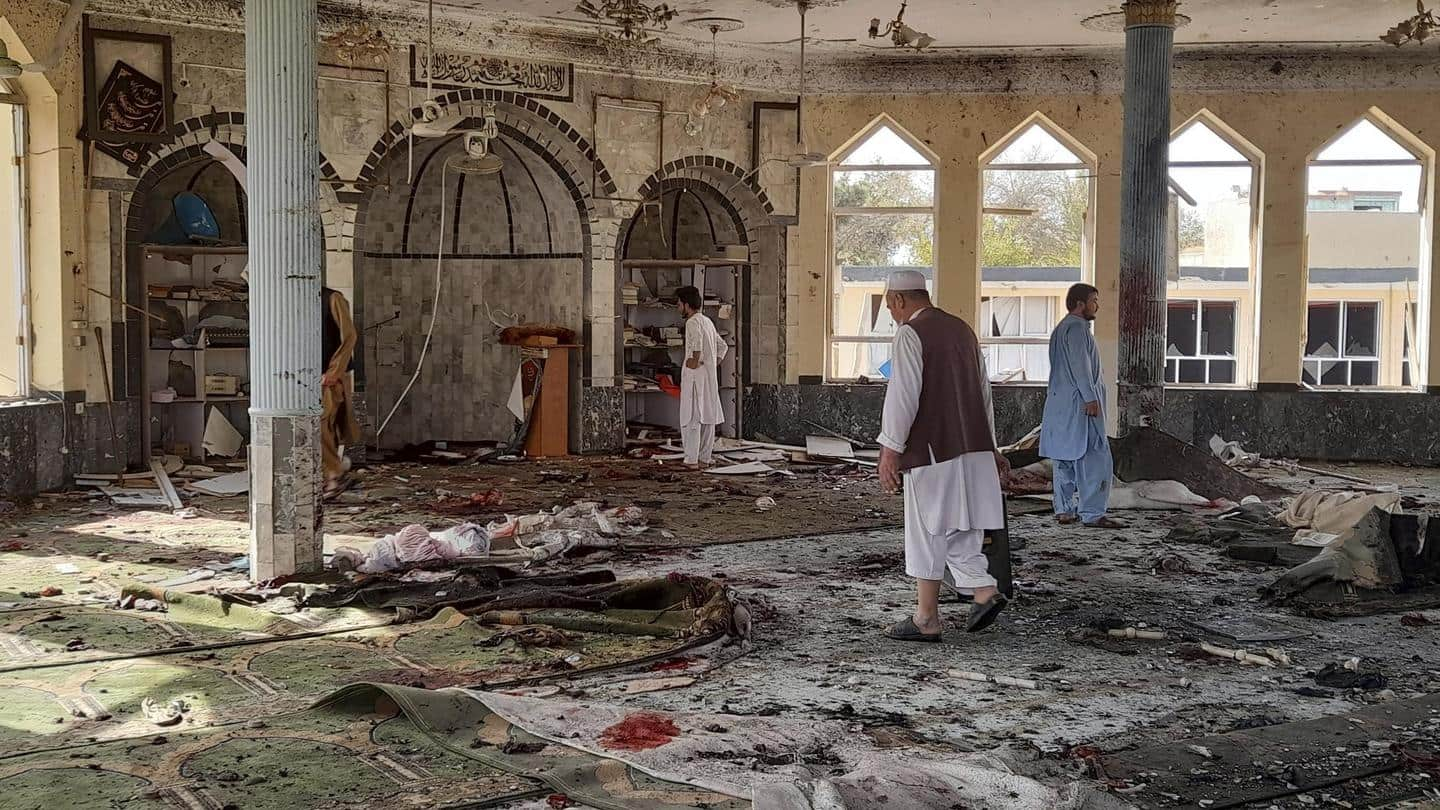
ISIS-K claims killing 300 Shia worshippers in Afghan mosque attack
What's the story
The Islamic State-Khorasan (ISIS-K) has claimed responsibility for the suicide bombing inside a crowded mosque in Kunduz province in northern Afghanistan.
The terror group said in a statement it killed 300 Shia worshippers in the Friday attack, though reports suggest that number is a massive exaggeration.
The extremist outfit has carried out several deadly attacks on Afghan soil since the Taliban takeover in August.
Details
Sources say the claimed toll is an 'exaggeration'
ISIS-K's claim about the number of fatalities is false, sources told News18. "This is an exaggeration like always the terrorist group does."
Media reports have suggested that between 50 and 55 people died in Friday's attack.
Meanwhile, the above-mentioned sources said more than 100 people were injured.
The suicide bomber was reportedly an Uyghur Muslim, identified as Muhammad Al-Uyghuri.
Attack
Attack took place during Friday afternoon prayers
During the Friday afternoon prayers, the suicide bomber walked into the male section of the Sayed Abad mosque in Afghanistan's Kunduz province and detonated his explosives.
All the victims belonged to the Shia Hazara community, an ethnic minority that has been long persecuted by Sunni Muslim extremist groups, including the Taliban.
The Taliban, meanwhile, said it has launched an investigation.
Developments
Islamic State carried out several attacks in recent weeks
The Islamic State group has emerged as the biggest security threat in Afghanistan since the Taliban took control of the country in mid-August.
Just days ago, the group orchestrated a bombing in Kabul, killing at least two people.
Earlier, ISIS-K had also claimed responsibility for a suicide bombing at the Kabul international airport that killed nearly 170 Afghan civilians and 13 US service members.
Group
Who are ISIS-K?
ISIS-K is a lesser-known affiliate of the Islamic State of Iraq and the Levant (ISIS/ISIL), mainly active in eastern Afghanistan.
It is known to govern its areas with an extremely strict interpretation of Islamic law.
The group has been at odds with the Taliban for years and the two have fought for territory and resources.
Background
Taliban overthrew former government to regain power after 2 decades
The Taliban overthrew the US-backed government in Afghanistan on August 15, regaining control after 20 years of war.
It has since announced members of its interim government, which includes several feared terrorists.
Countries around the world, including India, have so far refused to recognize that government, saying it is non-inclusive.
Women and minorities have not been given participation in the new government.